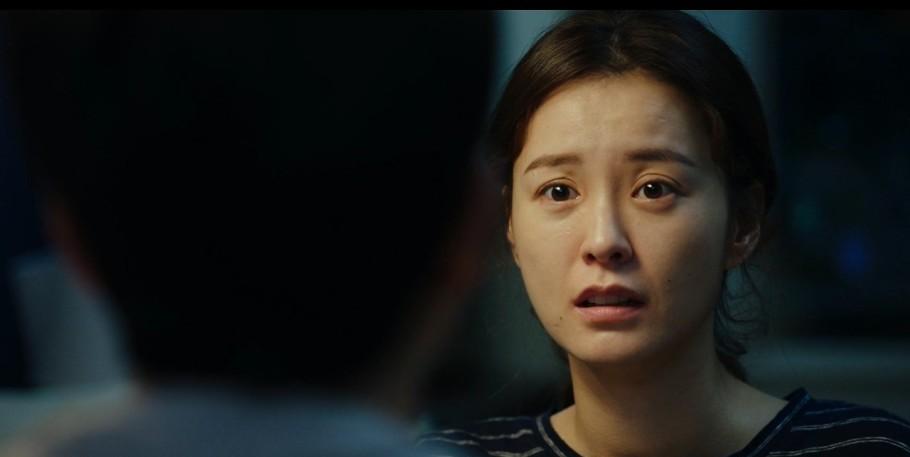
It was an exceptionally bad day for the teacher. The whole class received a group match because the surroundings did not clear the blackboard,[3], and suddenly, by examining the nails, Kim Ji-young hid his hands in a drawer[5] and had to urgently cut off his nails with scissors.6. A few of the children who had always remained and ate were devouring the rice that day, and the teacher was angry that the rice pool[8] and anchovies[9] would pop into the children's faces. Some children filled their mouths with rice and cried with [12].14. [15] Children who ate teardrops in snow-to-eye rice did not sing[17], but they naturally gathered behind the classroom during the cleaning time.18. It's all over, Yeongjin Market[22], grandma rice cake house.
One day, the teacher was unwell, the mood was also very bad, but the day student did not wipe the blackboard clean, so the whole class was called up to punish the station, and suddenly checked the nails. Jin Zhiying hurriedly put his hands into the desk drawer and quickly trimmed his nails with scissors. The students who were always the slowest to eat were also scared that day, and the teacher angrily tapped the classmates' dinner plate with a spoon, and the rice grains and dried fish on the plate were about to bounce in the student's face. Several classmates finally couldn't bear it anymore and cried loudly with food in their mouths. The few students who had eaten a stomach full of grievances and tears gathered at the back of the classroom when cleaning the classroom, exchanged words, eyes, and gestures, and decided to gather at a spicy fried rice cake shop opened by grandmothers in the Rongjin Market after the class ceremony.
As soon as they gathered,[24] they poured out complaints[25].
"It's a firefly for us. I've been catching thuds since the morning[28], arthur horned[29]."
"That's right"
"Keep asking me to eat next to you.32, so I don't eat more. [33]”
"I don't eat on purpose, I'm not playing pranks, I'm slow to eat originally, but what do I do?"
As soon as everyone got together, they started complaining.
"He made it clear that he was using us as punching bags, and from morning to night he was picking at our faults and causing us trouble."
"That's right."
"I've been telling us to swallow quickly, but I can't swallow it."
"We don't mean to eat slowly or not seriously, but we eat slowly, what do we want to do?"
^ Unwell, bad state can be said 컨디션이 안 좋다
^유한히, (words and deeds or status) exceptional
^~한다는 이유, ~한다 indicates a quote, this sentence is (the teacher said) the reason why the blackboard was not wiped clean...
^Receive conformity, 受到体罚
^Drawer, 抽屉
^자르다 is the cut, cut this action, 잘라내다 is to subtract, cut out this result
^눈치 보다, Look at the face, look at the color
^Rice grass, 饭粒
^멸치, Air-dried small salted fish, usually mixed and eaten as a small cold dish
^Pop up, 跳赳来
^Tap the plate, 敲餐盘
^밥을 가득 문 채, the state of the mouth stuffed with rice
^Crying, 泪水夺眶而出
^~하고 말았다, indicating the completion of the action. 말다 originally meant that in addition, ~하고 말다 can be understood to mean that there is no other action except for the action of ~하다 in front of it, so it means that the action is complete.
^Jijie, 猛然间
^눈칫밥에 눈물밥, Because I saw the teacher's face, it was 눈칫밥, and I cried so it was 눈물밥, together it was 눈칫밥 plus 눈물밥
^누가 부른 것도 아니다, no one specifically summoned, so it is the same
^모이다, Gather. People or animals spontaneously gather together to use 모이다, and people accumulate something called 모으다. For example, save money, 돈을 모으다
^눈짓, Eye Color; 손짓, Gesture
^ There are back and forth, giving and receiving back is called 주고받다
^Before school ends, the homeroom teacher briefly summarizes the day's events, and this activity is called 종례
^영진시장, checked, Busan should not have this place now
^모이다, people actively get together is 모이다, passive accumulation is 모으다, e.g. saving money, 돈을 모으다
^~As soon as you do, 一... 就...
^불만, dissatisfied
^Pour out, 倒出
^화풀이, noun, out of breath, out of breath. 화, anger. 풀다, unravel. 화를 풀다, deflate, vent. 화풀이 is a noun that can be understood as an outlet cylinder. 화풀이하다, take ~ when making a gas cylinder
^Catch, 找茬
^ The subject is 혼내다 when the subject is trained, and 혼나다 when being trained
^~하잖아, isn't it (how)? Table rhetorical questions
^먹으라고 is a reference to a command sentence. The original sentence should be the teacher saying: "빨리 먹어", when the student quotes it, he will say: 선생님이 (나에게) 빨리 먹으라고 하셨다.
^재촉, supervise
^먹다 is the action "eat" emitted by the subject; 먹이다 is "hey"; 먹히다 is "to be eaten". Here the children express that they take the initiative to eat at the urging of the teacher, but the meal is really unable to swallow, so use '먹히다'.
^On purpose, 故彾彻
^장난 치다, naughty, often used
^어쩌라고 is a dialect that is said in Gyeongsang-do, where Busan is located, and in other places such as Gangwon-do. This is spoken in several places